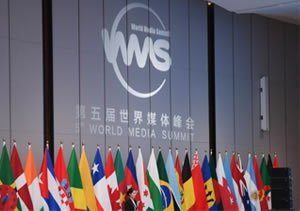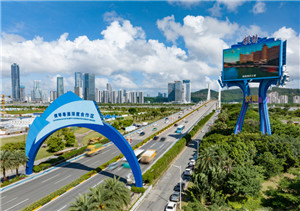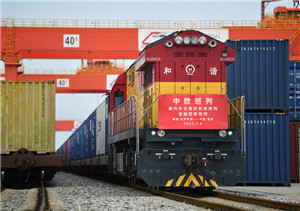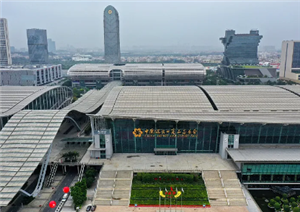Editor's Note: In a year marked by rising protectionism and "decoupling" attempts in the world economic arena, what has become of China's allure as a favored investment destination? Foreign enterprises' bullish moves have told a lot about it.
[Video/GD Today]
Donald Trump is scheduled to take office as the 47th president of the United States on January 20, ushering in his second term in office and capping one of the most astounding political comebacks in American history.
While the world is concerned about the uncertainty that President Trump will bring, ExxonMobil, a US-based company and one of the world's top three oil and gas concerns, is making full preparations for the new start-up of its major investment project, the Huizhou Chemical Complex in Guangdong province, which is scheduled for 2025.
Starting last September, according to a 20-year agreement with Guangdong Energy Group, ExxonMobil has secured 1.8 million tonnes of LNG (liquefied natural gas) annually since the new Huizhou LNG terminal in Guangdong province started commercial operation.
This is the epitome of how American companies operate in China. Harley Seyedin, President of the American Chamber of Commerce in South China (AmCham South China), told GDToday that American companies are here to stay, and not a single member of the American Chamber of Commerce in South China has left China, even though 2024 was a year marked by rising protectionism and "decoupling" attempts.
During GDToday's exclusive interview with Seyedin, he reaffirmed that people shouldn't worry so much about China's growth rate but rather about the quality of the growth. More specifically, people should be more concerned about the growing areas, who benefits from them, and where they should invest. This is what AmCham South China is studying, and they will announce the results next month after the Chinese New Year.
Optimistic about China's transition
The latest data on China's economic performance in November and the recent key high-level meetings on China's economic work have indicated that the country's economy has maintained overall stability and made steady progress in 2024.
Hence, Seyedin insisted that foreign investors and observers should be more concerned about the quality of the growth. He believes the Chinese market is going through a transition, marking the first time China has experienced a downcycle in its development in the last four years.
Seyedin believed that transition is necessary for the market, redirecting to where it's more efficient, productive, and competitive. In his eyes, American companies see it as an opportunity to improve products and services and plan for the future. They choose to invest in new technologies, new manufacturing capabilities, and facilities and try to be ready for when the market picks up.
Seyedin affirmed that they don't invest today for today but rather for the next 2, 3, 4, or 5 years and the long-term future.
In Seyedin's eyes, South China, specifically the Guangdong-Hong Kong-Macao Greater Bay Area (GBA), is one of China's most profitable investment destinations. According to AmCham South China's 2024 special report on the state of business in South China, 88 percent of the companies studied have already made profits in China, among which 46 percent reported that they have met their budget expectations, and 90 percent of American companies have achieved profitability in China.
Seyedin's team in AmCham South China is working on the 2025 edition of the special report, which will be released by the end of February. "We do expect that the numbers will show that people will be more optimistic in 2025 and that they have more investment money that they will be investing in 2025," said Seyedin.
Benefit both sides equally
When talking about Donald Trump's stepping up as the President of the US, Seyedin joked that he may be one of the few people to say this with the media. Seyedin prefers to look to continuous cooperation between the US and China.
Compared with China's exporting goods to the US, Seyedin believed that President Trump is more willing to welcome Chinese investment. He has expressed his enthusiasm for bridging Chinese companies to invest in America on many occasions in China, since in the past decades, his AmCham South China has established a network with many cities, chambers of commerce in the US, and industry associations.
Seyedin believed that it was impossible to end globalization, that differences could always be negotiated, and that agreements could be reached in different ways. The negotiated agreements are much less expensive than tariffs or sanctions.
Seyedin thinks the world's future—not just the US and China, but every country—is dialogue and discussion, trying to understand each other's needs, wants, and capabilities, and recognizing what needs to be done."It is working on a win-win method of discussion. Negotiation is not a win-lose method."
Seyedin insisted the future of the US and China should benefit both sides equally.

















